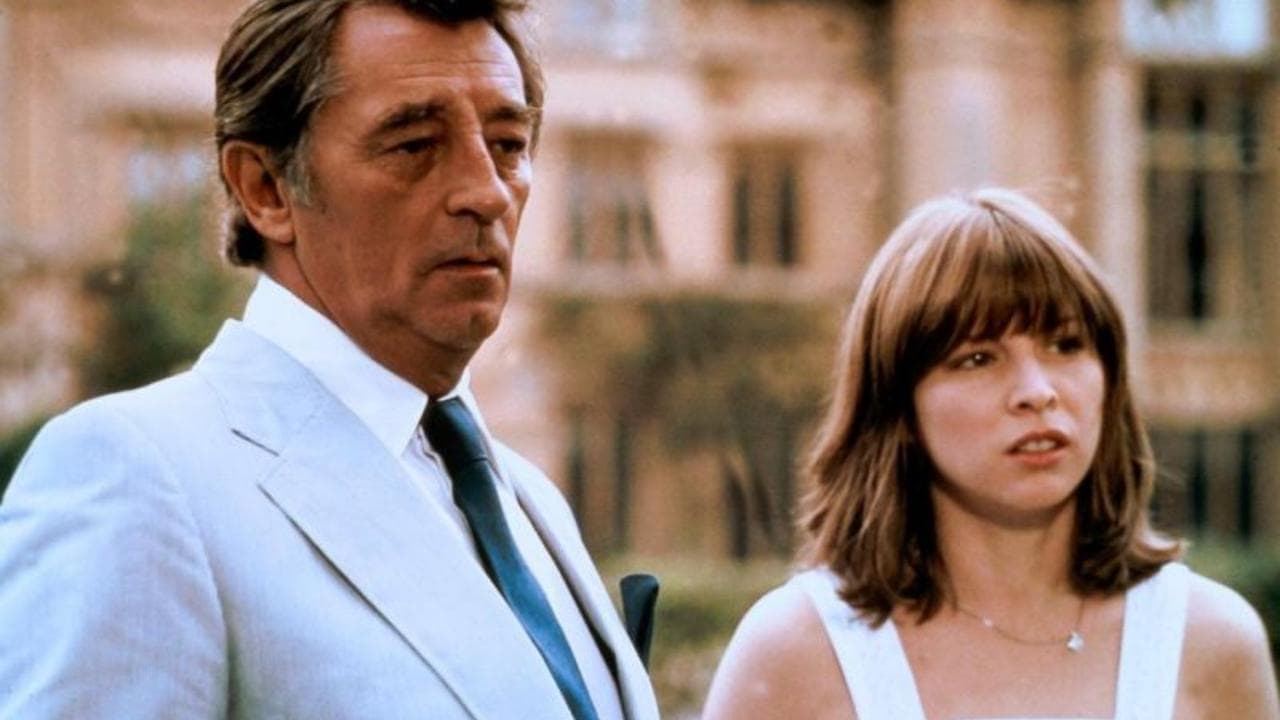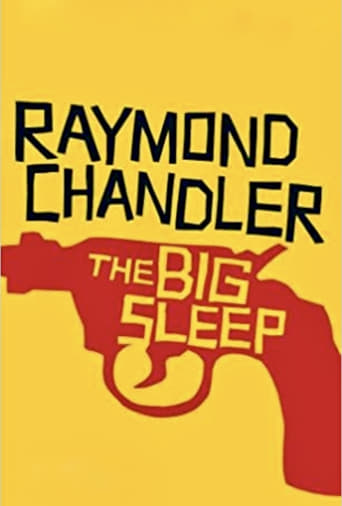

"The Big Sleep", re-located from 1940s Los Angeles to 1970s Britain. An impeccable cast cannot overcome the fact that this is really a rather lackluster production. It is not that this is a bad film. It is simply that, despite the color cinematography, this version comes off as pale and bland in comparison with Howard Hawk's superb black-and-white 1946 version.
... View MoreMichael Winner, who claims as many of the credits (I use the word loosely) as he can for this celluloid abomination, is an intriguing phenomenon. He makes dreadful films, but presumably they earn enough at the box office to persuade yet another philistine, bean-counting producer to sign him up for another assault on sensitive eyes.As a sideline, the horrendously smug and obese Winner is a restaurant critic. Some of the less respectful publications in the UK hint that Winner is so loathed by chefs that every dish he is served contains a not so secret ingredient. How can I explain? The special stuff that is added in the kitchen to Winner's sauces and soups could otherwise have been deposited at the local branch of the Sperm Bank.Does Winner think he makes good films? How did he persuade Mitchum, Stewart, Reed et al to take part in this dire production? Do superannuated movie legends have no self-respect? Surely they don't need the money. Shame on them all for signing up with him.As a standalone film, this might earn 3 stars out of ten. As an unbelievably misconceived remake of a 1940s classic (despite all the loose ends of one of the most complicated and creakiest plots ever), I'm being too generous in awarding the IMDb minimum of one star.
... View MoreOne of Michael Winner's best movies.To many,that may seem to be damning "The Big Sleep" with faint praise,but in fact the much - maligned Mr Winner made two of the most interesting British movies of the 1960s,"The Jokers" and "West 11" and the highly individualistic "I'll never forget whats'isname" before setting out on a career path aimed perhaps at pleasing his accountants rather than the critics few of whom would forgive him for being so successful so young. He clearly divides opinion very strongly,fortunately for some of his detractors he does not appear particularly litiginous by nature. As a man who courts controversy he must have realised that re-making an iconic movie was going to be a risky enterprise.Nothing if not headstrong,he re-cast Mr R. Mitchum - the man actually preferred by Chandler - as Marlowe,albeit a Marlowe for the late 70s,smart,cool, confident and smooth.With power suits and an excellent set of wheels,Mitchum's Marlowe was designed to bear absolutely no resemblance to his predecessor's.In a further act of rashness Winner discarded the "Smart - mouth" dialogue that was in fact far from Chandler's slightly puritan style but which over the years had become associated with the movie to the extent that many of the audience assumed he himself had written it. Instead he settled for an honest - to - goodness straightforward rendering of the subject featuring an almost Lear - like General Sternwood and his two strange daughters. Some of Mr Winner's favourite actors appear and,continuing with the perhaps rather tenuous Shakespeare analogy,Mr R.Boone is as gleefully evil and limping as Olivier's King Richard. A good story is a good story,and to my mind "The Big Sleep" does not suffer from being set in England,indeed it could equally as well be set in Paris or Dublin. If Mr Winner was a shy,retiring, hermit - like creature no one would ever go and see his movies - a fact that would not please his accountants at all.
... View MoreMost people would probably run a mile at the thought of Michael Winner getting his hands on the rights to film Raymond Chandler's masterpiece novel 'The Big Sleep'; but personally, I was rather excited at the prospect. Michael Winner may not be a great director; but his films generally turn out to be entertaining in spite of not being brilliant, and with a story as strong as this one; I felt confident that The Big Sleep would be a good film. However, as it turns out; this film is not as good as it could have been. The story focuses on private investigator Philip Marlowe. He is hired by an old man who goes by the name of General Sternwood to investigate a case of blackmail against one of his daughters. After meeting the daughters and some of the other main players involved, our hero soon comes to the conclusion that the blackmail doesn't really constitute a threat and becomes suspicious; leading to him thinking that everything seems to be more connected with the disappearance of the man's son in law, and decides to investigate that instead.For one reason or another, Michael Winner has decided to move things over to England; although the lead man remains American. This change in location has not really had an effect on the story; but it did leave Winner free to recruit an excellent roster of British stars. Among the names in the cast list are Oliver Reed, John Mills, Joan Collins, Richard Boone and Edward Fox. The film is lead by Robert Mitchum, who while not as great as Humphrey Bogart, still makes an excellent leading man and there's also enough room in the cast for an aging James Stewart. The film is a lot shorter than the earlier version of this story and Winner has really trimmed things down a lot, which means that the story is much more straight forward than it was in the 1946 film. This is not really a bad thing as it does mean that the film is easier to follow; although it also seems less expansive. The characters take something of a backseat too, with only the lead character getting any real development. Still, this is at least an entertaining thriller and I don't feel like I wasted my time watching it; although Howard Hawks' version is better.
... View More